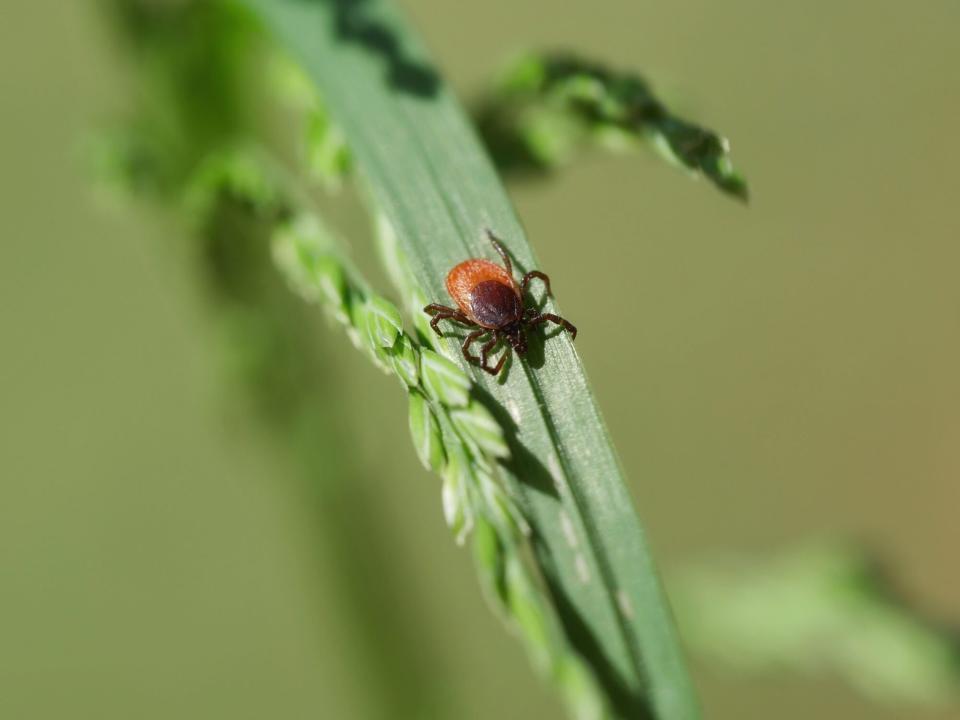This Year's Tick Forecast Is Not Looking Good
Thanks to a mild winter and warming weather, ticks are out in force this year. Grist points to reporting from tick-data crowdsourcing site, TickEncounter, that shows "American dog tick submissions were up 30 percent in April compared to March, that's 10 to 15 percent higher than usual." Like we said: Ticks are having a very good year.
In the South, tick season generally lasts from early April to late October or when temperatures dip below 45 degrees, according to the pros at Pests.org. However, not every state in the South reaches that temperature, meaning that "in some parts of the southeast, like central and south Florida… it's tick season year-round."
While this year the South most likely won't be experiencing warmer-than-usual summer weather, milder winter weather up north can lead to longer and longer tick seasons in the South. Per Pests.org, "There's relatively few months in the year when an extended period outdoors doesn't warrant being vigilant about ticks. In fact, tick season 2021 will go all the way to late fall in the southeast U.S."

Getty/Elke Schroeder / EyeEm
Why are ticks having a boom year? As the warm seasons stick around longer and inch north, ticks are around and eating longer than ever. They also have more places to live in the U.S. While ticks are more common in the Northeast, the South has plenty of them and some special home-grown varieties that warmer temperatures are sending North. Case in point, the lone star tick, which Grist describes as "an aggressive tick whose bite can cause humans to develop a severe allergic reaction to red meat," used to be most common in the South, but has been migrating up north for several years.
If you're concerned about ticks, wear long, light-colored pants so you can spot the little monsters, doing daily tick checks, avoiding tall grass when possible, and bathing soon after spending time outside. Interestingly, one of the best defenses against ticks are the South's very own Virginia opossum. These nocturnal marsupials are voracious tick eaters. According to the National Wildlife Federation, "Scientists have learned that opossums act like little vacuum cleaners when it comes to ticks - with a single opossum Hoover-ing up and killing an estimated 5,000 ticks in a season." While the little critters may startle you on your nighttime rounds, letting them eat in peace may save you the horror of a tick bite.
